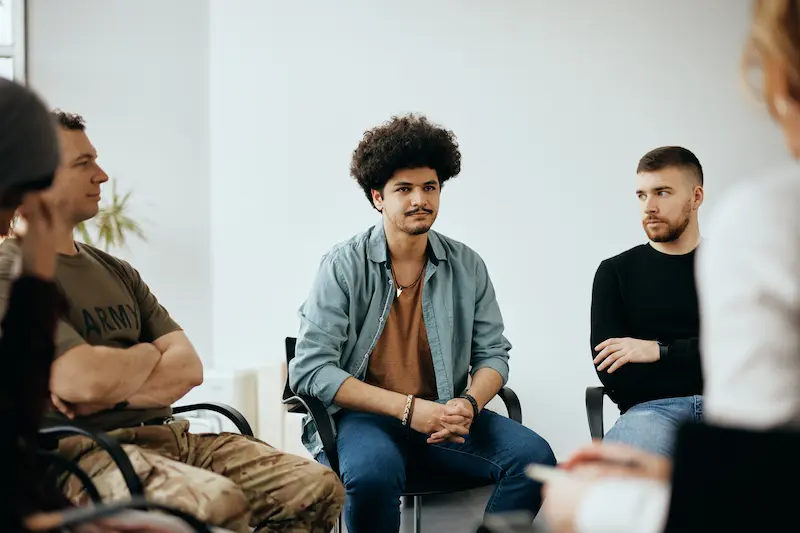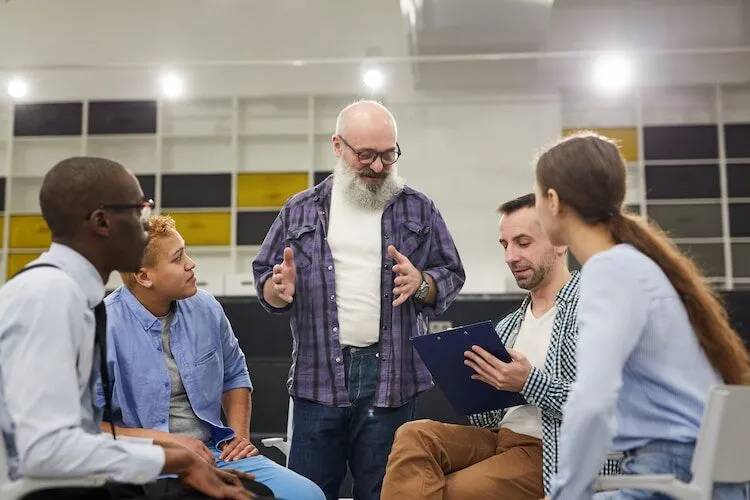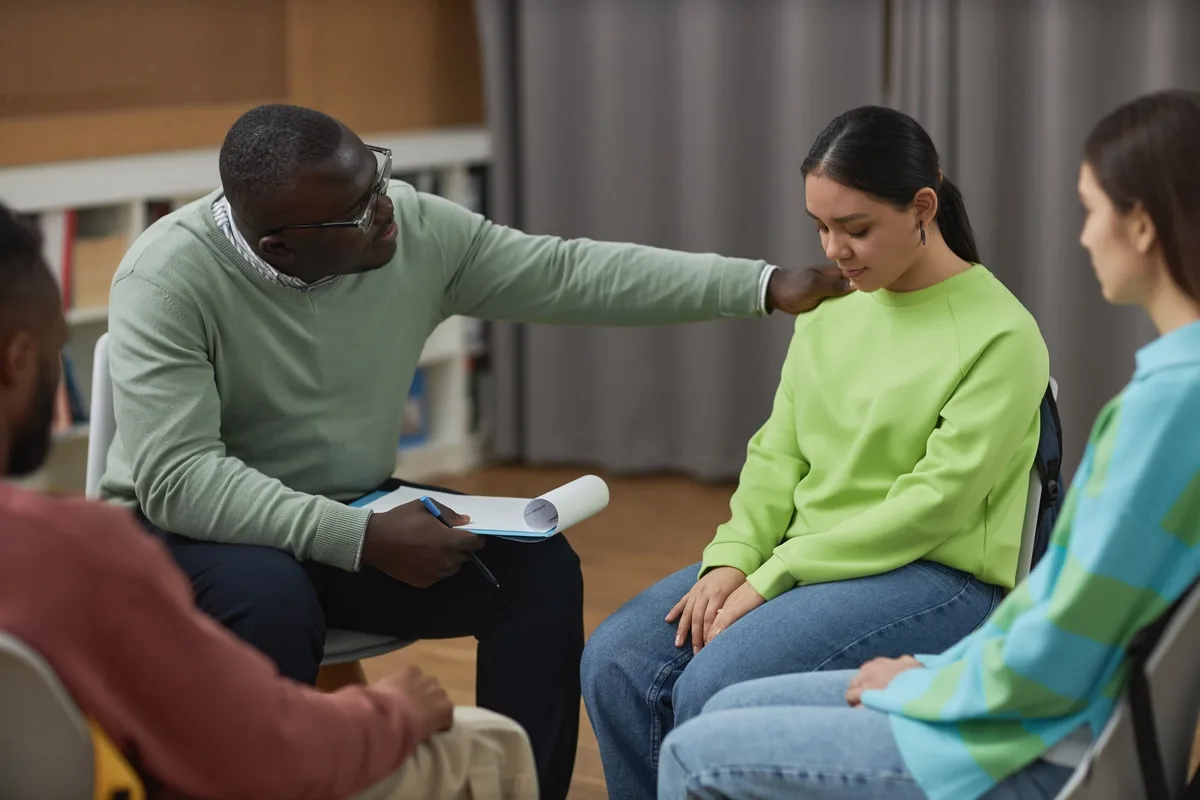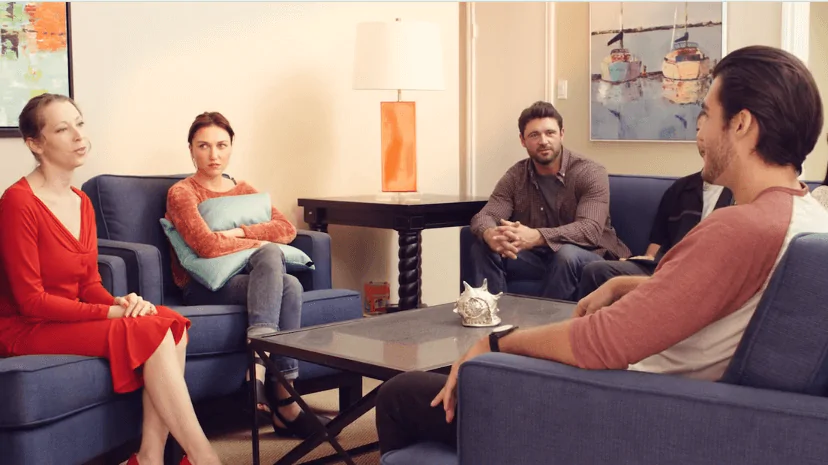24/7 Helpline:
(866) 899-111424/7 Helpline:
(866) 899-1114
Learn more about Group Therapy centers in Alachua
Group Therapy in Other Cities

Other Insurance Options

Optum

Holman Group

WellCare Health Plans

Kaiser Permanente

Health Partners

Premera

CareFirst

Health Net

Oxford

Humana

Horizon Healthcare Service

ComPsych

GEHA

Covered California

MHNNet Behavioral Health

Meritain

Excellus

Medical Mutual of Ohio

Ambetter

United Health Care

Better Beginnings
Better Beginnings is a private rehab located in Alachua, Florida. Better Beginnings specializes in t...














